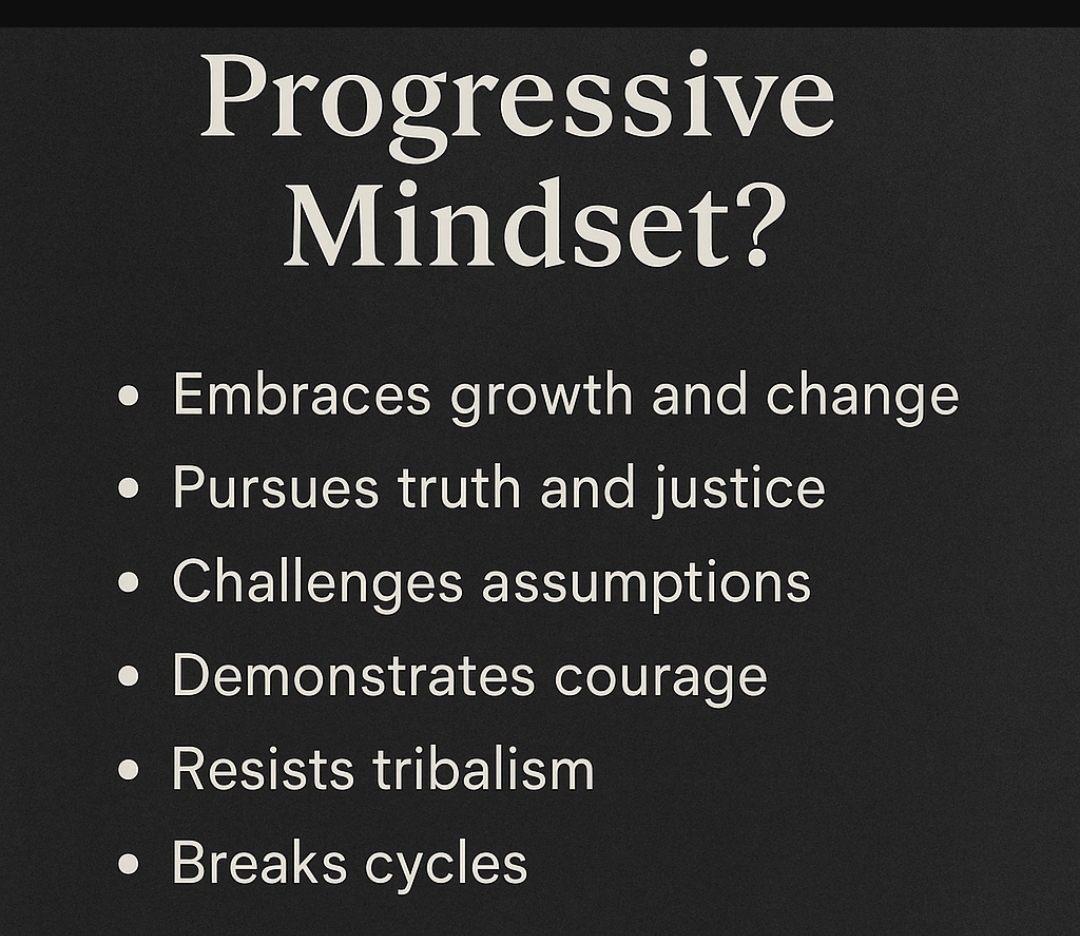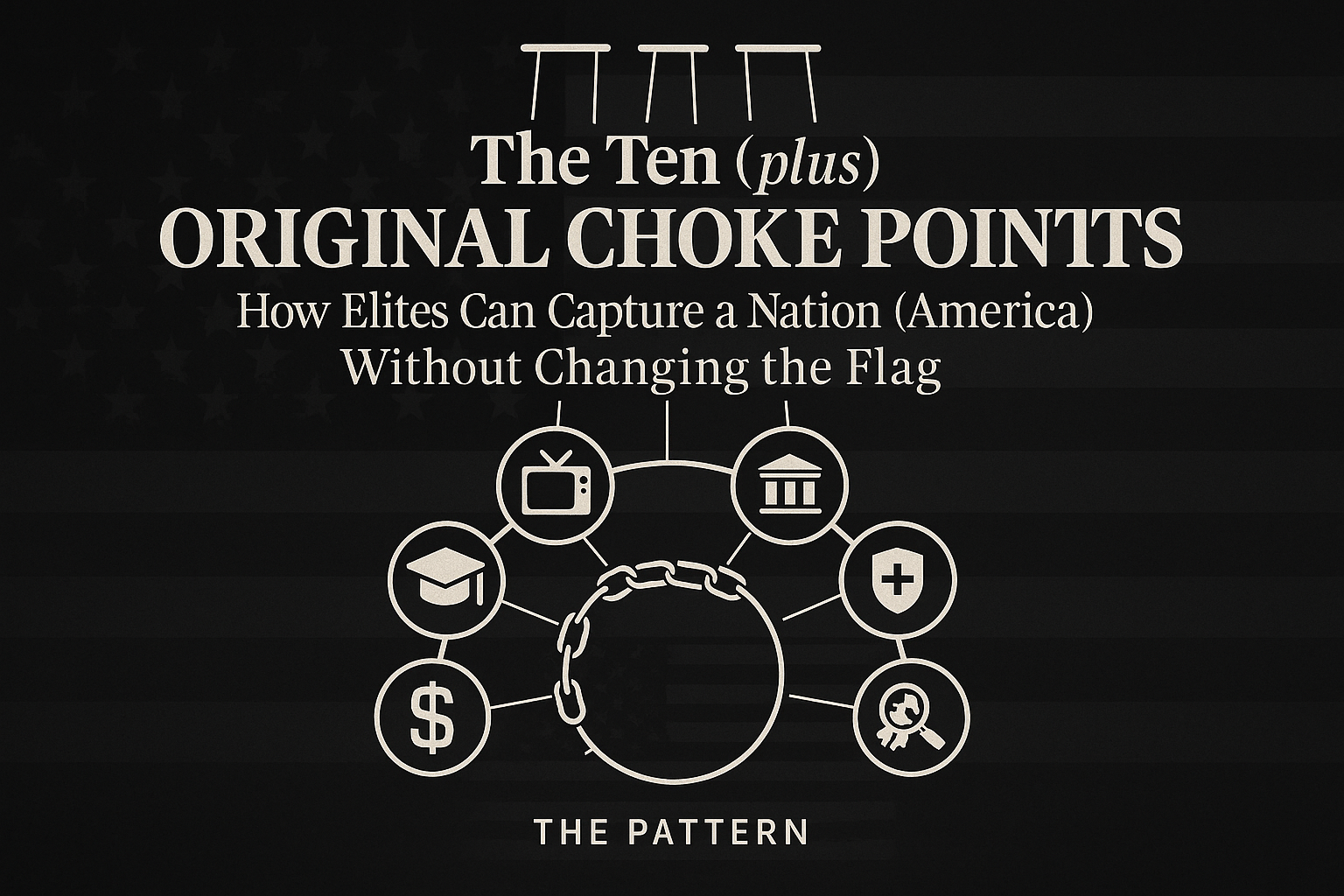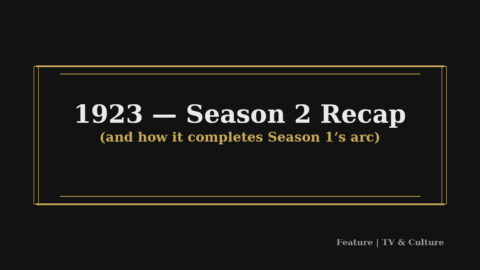“Progress is impossible without change, and those who cannot change their minds cannot change anything.”
— George Bernard Shaw
A progressive mindset is not a political label. It is a way of thinking, a way of seeing, and ultimately, a way of being. It transcends party platforms, ideological tribes, and social trends. At its core, a progressive mindset is the cognitive and moral ability to evolve, to challenge one’s frame of reference, and to pursue truth—even when it’s uncomfortable.
In an age of information overload, tribalism, and distraction, cultivating a progressive mindset is both a radical act of self-governance and a necessary tool for societal renewal.
The Foundation: Growth Over Fixation
A progressive mindset begins with the assumption that:
- You don’t know everything.
- You can learn from others.
- You are capable of transformation.
▪ Growth Mindset vs. Fixed Mindset
- A fixed mindset assumes ability, morality, or intelligence are static.
- A growth mindset believes improvement is possible through effort and feedback.
- A faith-filled mindset goes further: it trusts in higher truth, divine purpose, and transcendent possibility.
A progressive thinker doesn’t fear failure—they view it as fertile ground for learning.
Moral Maturity: From Conformity to Conscience
Using Lawrence Kohlberg’s Stages of Moral Development, we can see how a progressive mindset correlates with moral evolution:
| Stage | Description | Progressive Response |
|---|---|---|
| Stage 3 | “What will others think of me?” | Seeks belonging over truth |
| Stage 4 | “Obey authority and maintain order” | Legalistic and rule-bound |
| Stage 5 | “What is just and fair for all?” | Prioritizes principle over politics |
| Stage 6 | “Act from universal ethical truth” | Courageously serves truth even against popular opinion |
A progressive mindset transcends obedience to systems and chooses to live by conscience, reason, and justice.
Frame of Reference: The Willingness to Rotate the Lens
Most people live inside inherited assumptions—about politics, faith, race, history, gender, and self-worth. A progressive mind is willing to say:
“What if I’m wrong?”
“What if my enemy sees something I don’t?”
“What if my comfort is built on someone else’s suffering?”
It employs tools like:
- The 6 Thinking Hats (Edward de Bono)
- The Parable of the Blind Men and the Elephant
- The Hero’s Journey as a call to awaken and integrate new truths
Courage Over Comfort: Emotional and Moral Resilience
A progressive mindset resists the pull of tribal safety. It refuses the dopamine of confirmation bias. It’s willing to be misunderstood, mocked, or even exiled in the pursuit of truth.
- It is not passive.
- It is not partisan.
- It is not utopian.
It is deeply rooted in:
- Moral intelligence (right vs. easy),
- Emotional intelligence (respond vs. react),
- And spiritual integrity (alignment with conscience and Creator).
Breaking the Spell: Escaping the Loops of Propaganda and Indoctrination
In a world of engineered outrage, algorithmic echo chambers, and ideological programming, a progressive mind is awake to the mechanisms of control:
- It recognizes how language is used to shape perception.
- It understands how media reinforces learned helplessness.
- It questions the Overton Window and who sets its boundaries.
To be progressive in mind is to be free in spirit.
The Progressive Mindset Is a Transitional Character Mindset
It doesn’t just improve—it breaks cycles.
- It breaks from inherited trauma.
- It breaks generational conformity.
- It becomes the pivot point through which families, institutions, and even nations evolve toward justice, wisdom, and healing.
A progressive mind is not a better version of the past—it is the bridge to a new paradigm.
Conclusion: The Progressive Mind Is the Seed of True Restoration
To be truly progressive is not to adopt trendy opinions—it is to think beyond the box, beyond ego, beyond fear.
It is to ask:
- What is true?
- What is just?
- What is required of me?
The progressive mindset is not political. It is prophetic.
It does not wait for permission—it takes responsibility.
It does not conform—it transforms.






